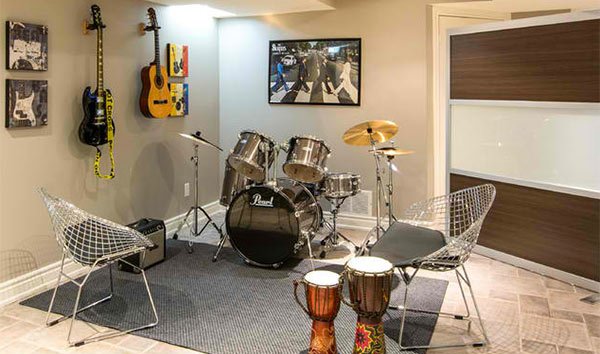Getting your child to practice their instrument regularly can at time feel like an uphill battle. Between busy schedules and varying levels of interest, many parents struggle to strike a balance between encouragement and pressure. However, with the right strategies, you can foster a positive relationship between your child and their instrument, helping them build...
ParentsPractice TipsEncourage Your Child to Practice Without Nagging

Getting your child to practice their instrument regularly can at time feel like an uphill battle. Between busy schedules and varying levels of interest, many parents struggle to strike a balance between encouragement and pressure. However, with the right strategies, you can foster a positive relationship between your child and their instrument, helping them build good habits that last a lifetime. Here are practical, realistic, and tested tips to make practice time enjoyable and effective for everyone involved.
Create a Dedicated Practice Space
Children thrive in environments that are structured and free from distractions. Designate a specific area in your home for music practice. This space should include the instrument, a music stand, and any necessary accessories such as metronomes, sheet music, or tuners. The area should be well-lit and comfortable, with minimal clutter. Adding personal touches like a favorite chair, a small plant, or inspirational quotes can make the space feel special and welcoming. Having a consistent place to practice establishes a sense of importance and routine, signaling to your child that their musical journey is valued.

Set a Consistent Practice Schedule
Consistency is key when developing any habit, including practicing music. Work with your child to choose a regular time each day for practice. This time should fit seamlessly into their daily routine, whether it’s right after school, before dinner, or in the evening. A set schedule helps make practice a non-negotiable part of their day, much like brushing their teeth or doing homework. Flexibility is also important—if an occasional conflict arises, reschedule practice rather than skipping it entirely. Over time, this routine helps build discipline and predictability, making practice feel like a natural part of their day instead of an imposed task.
Break Practice Into Manageable Chunks
Long practice sessions can overwhelm younger children or beginners, leading to frustration or boredom. Instead, encourage them to practice in shorter, focused intervals, such as two 15-minute sessions rather than one 30-minute block. This approach helps maintain their attention and reduces the risk of burnout. Use tools like timers or practice apps to help them focus during each interval, ensuring they work efficiently. You might also divide practice time into segments that focus on different skills, such as scales, new pieces, and review. This variety keeps sessions engaging and allows them to see progress across different areas.

Use Positive Reinforcement
Celebrate your child’s progress and efforts. Offer praise for completing a practice session or mastering a new piece. Small rewards, such as stickers or extra screen time, can also motivate younger children. Avoid focusing solely on mistakes—instead, emphasize what they did well.
Incorporate Fun Activities
Make practice enjoyable by incorporating games and challenges. For example, use flashcards for note recognition to turn theory into a quick, engaging activity. Create a “practice bingo” sheet with different tasks to accomplish over the week, such as playing a piece flawlessly or practicing scales for five minutes. Challenge them to play their favorite song for a family audience or record a performance to share with loved ones. Adding these fun elements keeps practice sessions fresh and exciting, reducing resistance and making the process feel more like play than work.
Be Involved (But Not Overbearing)
Show interest in your child’s musical journey by occasionally sitting in on practice sessions or asking them to perform for you. Your involvement demonstrates that you value their effort and progress, which can be highly motivating. However, it’s crucial to strike a balance—too much oversight or critique can make them feel pressured and reduce their intrinsic motivation. Instead, offer encouragement and ask open-ended questions about their practice, such as “What part of that piece do you enjoy most?” or “What’s the most challenging part of today’s practice?” This approach fosters a sense of autonomy while showing your support.

Set Goals Together
Work with your child to set achievable goals for their practice. These could range from mastering a specific piece to improving a particular technique or preparing for an upcoming recital. Break larger goals into smaller milestones to make them more manageable, and celebrate when they’re achieved. For example, if they’re learning a complex song, set goals for mastering one section at a time. Having clear objectives helps your child stay focused and gives them a sense of accomplishment. It also teaches valuable skills like goal-setting and time management that extend beyond music.
Connect Practice to Their Interests
If your child loves a particular genre of music or artist, incorporate those interests into practice sessions. Learning songs they enjoy can make practice feel less like a chore and more like an exciting challenge. For instance, if they’re fans of pop music, look for sheet music or tutorials for their favorite songs. You can also explore ways to connect their music lessons to other hobbies, such as creating a soundtrack for a favorite video game or composing a simple tune for a school project. This approach helps them see the relevance of their practice and keeps them engaged.
Provide Opportunities to Perform
Encourage your child to showcase their skills by performing for friends, family, or at local events. Knowing they have an audience can motivate them to practice more diligently. These performances don’t have to be formal—even a casual performance at a family dinner can build their confidence and sense of accomplishment. You might also explore virtual performance opportunities, such as sharing a video with extended family or participating in an online recital. Regular performances give your child a sense of purpose and allow them to celebrate their progress.

Lead by Example
If you play an instrument or have a hobby that requires practice, let your child see you dedicating time to it. Your actions set a powerful example that practice is a valuable and rewarding habit. Sharing your own experiences with learning and overcoming challenges can also help them relate to the process and feel less alone in their efforts. Even if you’re not a musician, showing interest in music by attending concerts or discussing your favorite songs can demonstrate the joy that music brings to life.
By creating a supportive and structured environment, you can help your child develop a love for music and the discipline to practice regularly. Remember, the goal is to foster a lifelong appreciation for their instrument, not just short-term compliance. With these strategies, practice time can become a positive and rewarding part of your child’s day.

